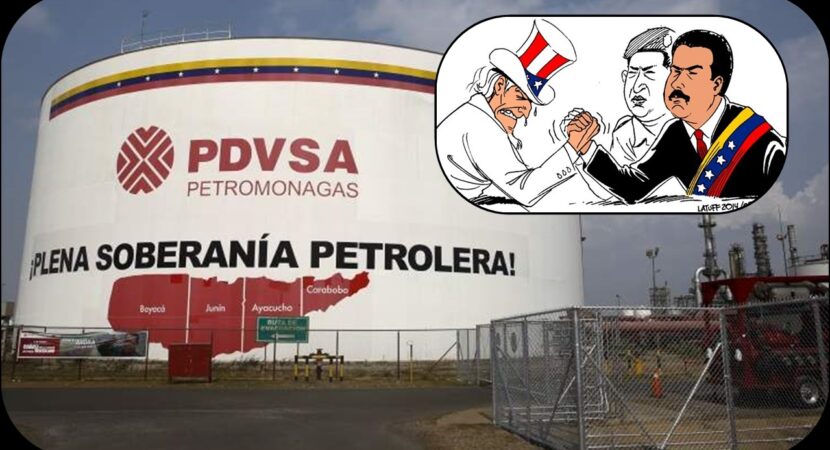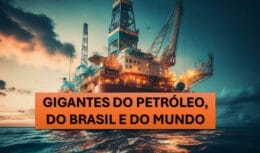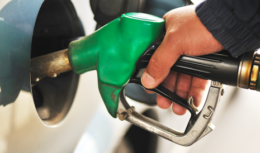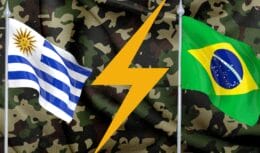
More than $1 billion in debt issued under the Maduro government jeopardizes the company's lucrative refining business in the United States and Colombia
Venezuelan President Nicolas Maduro asked to join the dialogue table between his government and the opposition in Mexico and Colombia with the request for the return of control of Citgo and the petrochemical company Monomeros, all subsidiaries of the state-owned Petróleos de Venezuela (PDVSA). Currently, the Venezuelan subsidiaries face threats from creditors on different fronts and the hope is that a way will be found to prevent the company from falling into the hands of third parties.
Read also
- Gasoline is cheap, it costs R$1,95 at the refinery; Federal tax has been fixed for years but does not prevent constant high fuel prices
- Oil evaporates under strong pressure from sellers, reaching US$ 66 a barrel and putting pressure on Petrobras to lower gasoline prices, which suffered yet another increase on August 12
- Direct sales from ethanol plants to gas stations generate benefits for consumers who will benefit from low prices and quality
- Gas pipeline explosion in Venezuela may have been target of terrorist attack
- In desperation, people in Venezuela steal oil to produce their own gasoline
- Iranian oil tanker loaded with gasoline, bound for Venezuela, “breaks” American barrier in the Caribbean Sea
- Venezuelan oil tanker FSO Nabarima is at risk of sinking loaded with crude oil and attracts international concern
In negotiations that began on August 13 with the opposition, the Government of Venezuela claims control of the companies, which was part of the machinery created by opposition leader Juan Guaidó, recognized at the time as interim president by more than 50 countries and accused by Maduro of appropriating and dismantling monomers in complicity with the government of Iván Duque.
“That a clear, direct and official document be made from all Venezuelan producers so that Dr. Jorge Rodríguez (head of the delegation) for Venezuela took as a fundamental point in the first session of the dialogue in Mexico the signing of a document for the company Monomeros to return to its owner Pdvsa, to the country as a company that freaks out our nation with its production,” Maduro said during a speech broadcast by the Venezuelan state television channel.
Maduro said it is important that Venezuela's money blocked abroad becomes the engine of the national economy.
The president indicated that the eventual return of Monomers could mean one of the first common measures of the dialogue for the economic recovery of Venezuela. According to the Government, in 2018 the monomers produced 860 thousand tons of fertilizers, but in 2019 it only had 22% of its operational capacity.
Monomers is a limited liability company for the production of caprolactam (nylon feedstock) and compound fertilizers.
In 2006, the company's Colombian shareholders decided to sell their stakes to the Venezuelan state-owned Petroquímica de Venezuela (pequiven).
Citgo, despite the limitations under which it operates, on the 16th, the company reported a small profit in the second quarter of the year, the first since 2019, and remains the eighth largest refinery in the United States, according to Reuters. The company's recent history is a legal drama parallel to the political crisis that the South American country has been experiencing since 2014, when it entered an economic recession.
In December 2015, the opposition won two-thirds of the Legislative Assembly, and a few months later, in 2016, the Government of President Nicolás Maduro decided to issue 1,4 billion dollars (7,4 billion reais) in bonds to refinance the debt. of PDVSA, without the approval of Parliament. The Government offered shares of Citgo as collateral and Wall Street reacted with appetite buying the papers.
25 billion dollars for 8 continuous years is needed to recover PDVSA
Economist José Toro Hardy reported that Venezuela has less than 20 years to make investments and recover the oil industry because there are still “enormous oil reserves”. He guaranteed that these two decades of oil should be taken advantage of because in 2040 a “progressive displacement of oil by other less polluting agents” will begin.
He revealed that to recover Petróleos de Venezuela (PDVSA) 25 billion dollars are needed, for 8 continuous years, to recover the production levels of 1999. He pointed out that the numbers are so great that they make investments in the country impossible. amounts required and in the manner that the National Government wishes.
The former director of PDVSA recalled that for private investment to take place, security and transparency are necessary. In the case of Venezuela, he guaranteed that none of the conditions exist. He denounced that it is not known who is receiving the contracts, the terms and conditions.
“They talk about private investment, but they don't explain what they are, who they are or how they arrive and what are the advantages for the country. I am very afraid of these investments, ”said Toro Hardy.
The expert also referred to Venezuelan refineries. He stated that these are destroyed due to lack of maintenance, capacity and investment.
Oil companies Total and Equinor “abandon ship” in Venezuela
For his part, the former Minister of Petroleum, Rafael Ramírez, pointed out that the departure of the international partners Total and Equinor is due to the fact that they do not have a reliable partner because they cannot work with PDVSA “in ruins”.
“There is no capacity, there is no knowledge, nor is a Plan followed, a plan that does not exist, they leave because the Government – through the Ministry of Petroleum – definitively violates the terms and conditions established in the Joint Venture, they leave because the country is a disaster , no one trusts him. Not only the French and Norwegians left, but also the Russians. No one is willing to delve into Maduro and his improvisations,” Ramírez highlighted.












